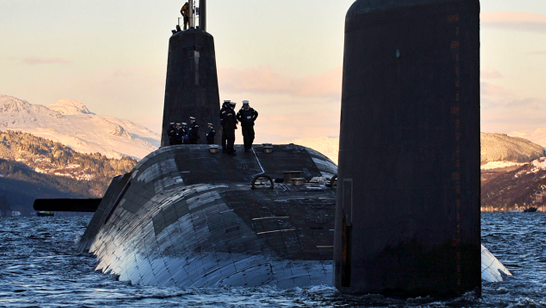
Humanitarian action is based on the principles of humanity, neutrality, impartiality and independence: care is given to the more urgent and serious cases, regardless of ideology, race, age, religion or political affiliation or other factors. Humanitarian action is autonomous from political, economic and military objectives and it is not to be used as a tool of foreign or security policy.
With this in mind, it may seem surprising that humanitarian organisations, such as Médecins Sans Frontières (MSF) or Save the Children have welcomed military assistance in addressing the Ebola outbreak in West Africa. A key factor here is that the Ebola outbreak is a disaster, not a conflict.
Humanitarian assistance provided by militaries never belongs in an active conflict, particularly if provided by the military of a state party to the conflict or a military that is otherwise involved. However, the role of militaries or paramilitary forces to provide logistics or transport in natural disasters that take place in peacetime is fairly well established.
Before organisations such as MSF or Oxfam ask for military engagement, they carefully consider the risk. These organizations have been clear that they are not asking for armed guards; they have also been clear that the military is not to be used for quarantine, containment, or crowd control measures. They are rather looking at the military for logistics, construction, transportation and operational support.
Military engagement should be a temporary measure until the outbreak has ended and the focus should be on providing logistical and infrastructure support; and militaries should avoid delivering aid directly. To this end, the global community should be cognizant of the risk of mission creep. Military medical engagement must not morph into longer-term operations, which have been questioned not only over their effectiveness, and also over their impingement on humanitarian norms, particularly in conflict and post-conflict settings. How Ebola is handled may be a defining moment.
Beyond the current Ebola outbreak, there remain broader questions about the militarisation and securitization of health. One specific question is: should armed forces have global health emergencies permanently on their agenda?
The answer is yes, and no. Giving the epidemiological profile of Ebola, this outbreak probably could not have been prevented; but it could have largely been contained through more effective civilian public health measures. To contain future outbreaks, the global community needs to further invest in monitoring, surveillance and response, and wider strengthening of health systems. This would make it less likely that the military will need to be called in when things get out of hand.
However, militaries can have a role to play in prevention, particularly in surveillance and laboratory support. This is partly because some of the measures in place to deal with bioterrorism are the same as non-intentional outbreaks. A specific example comes from the implementation of the International Health Regulations.
The IHR is an international treaty governing surveillance and response to public health concerns including infectious disease, chemical, radiological, food and zoonosis threats. The ultimate origins of the IHR go back to the 1860s, but the most recent version was adopted in 2005 and went into force in 2007. Starting in 2007, States Parties were given five years to implement the new measures in the IHR (2005), including strengthening core capacities in disease surveillance and response activities. In 2012, 118 of the 196 States Parties requested and obtained extensions to 2014 to fulfill their IHR (2005) requirements. Again, many States Parties (WHO is to release exact numbers in mid-November) have requested an extension to 2016. This is not to say that nothing has been accomplished – across the board, countries have made great strides in implementation. And militaries have assisted in meeting these requirements, particularly with regard to complimenting civilian surveillance and laboratory capacity and training staff. However, not enough has been done.
Thus, the difficulty of Ebola control does not come as a surprise. At the meetings of the WHO governing bodies over the past several years, States Parties, especially those with low-resources, have discussed the need for more financial, human and material support in meeting their IHR (2005) requirements. There have also been specific calls for more support and attention towards States Parties in the African region. The WHO Secretariat has been fully committed to providing support. However, technical support and coordination requires funding, and the WHO is chronically underfunded.
Beyond funding, there are political and social factors at international, national and sub-national levels affecting IHR implementation. Within the African context, specifically, one reason for difficulties has been ‘brain drain’: the loss of doctors, nurses and other health personnel to middle and high-income countries. This highlights that successful implementation of the IHR (2005) is only one aspect of responding to future outbreaks. Having a functional health system, with appropriate financial and human resources, is essential.
The current Ebola outbreak in West Africa is a crisis situation and, at this moment, ‘boots on the ground’ support from the military is welcomed for logistical, infrastructure and transport tasks. However, as we prepare for future outbreaks, we need to reflect upon public health frameworks we already have in place for disease control and prevention. Calls for increasing the capacity of the military to respond to global health emergencies, may result in shifting the focus away from preventative solutions, especially strengthening civilian health systems, including disease surveillance and response. As already indicated, there is a need for complimentary, behind-the-scenes support from the military within this civilian framework, particularly with regard to laboratory capacity. But overall, we need to move beyond the 1990s and 2000s discourse of ‘securitizing’ health. Heath is not a security issue per se – but when countries and the international community fail to invest properly in civilian health systems and services, it can become one.
The opinions articulated above represent the views of the author(s), and do not necessarily reflect the position of the European Leadership Network or any of its members. The ELN’s aim is to encourage debates that will help develop Europe’s capacity to address the pressing foreign, defence, and security challenges of our time.



